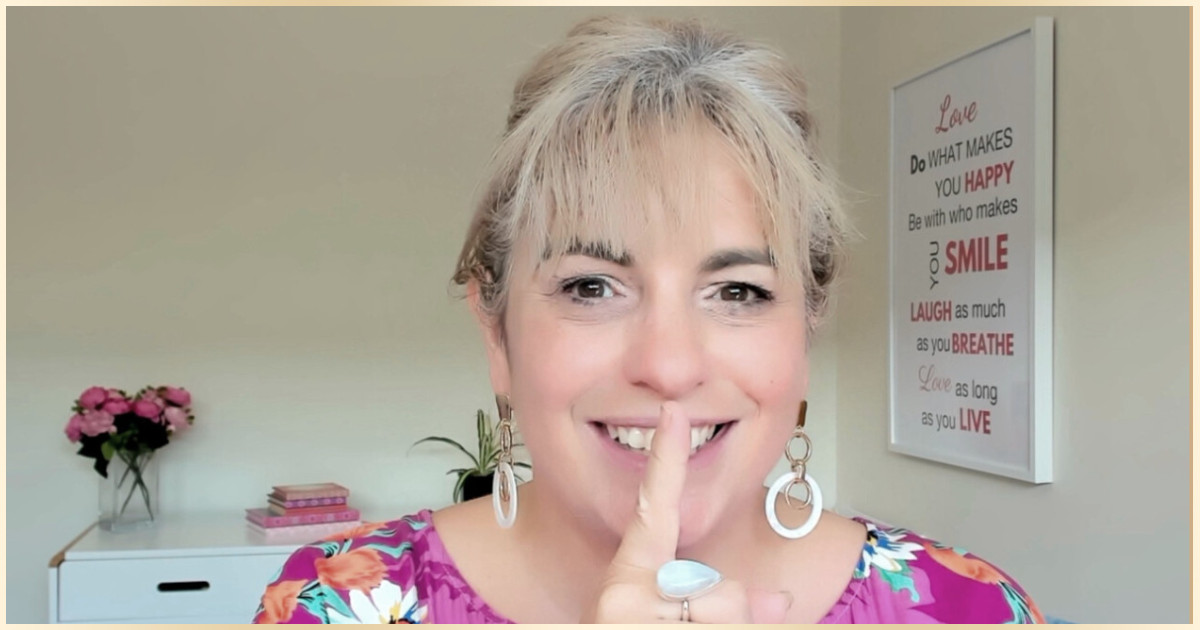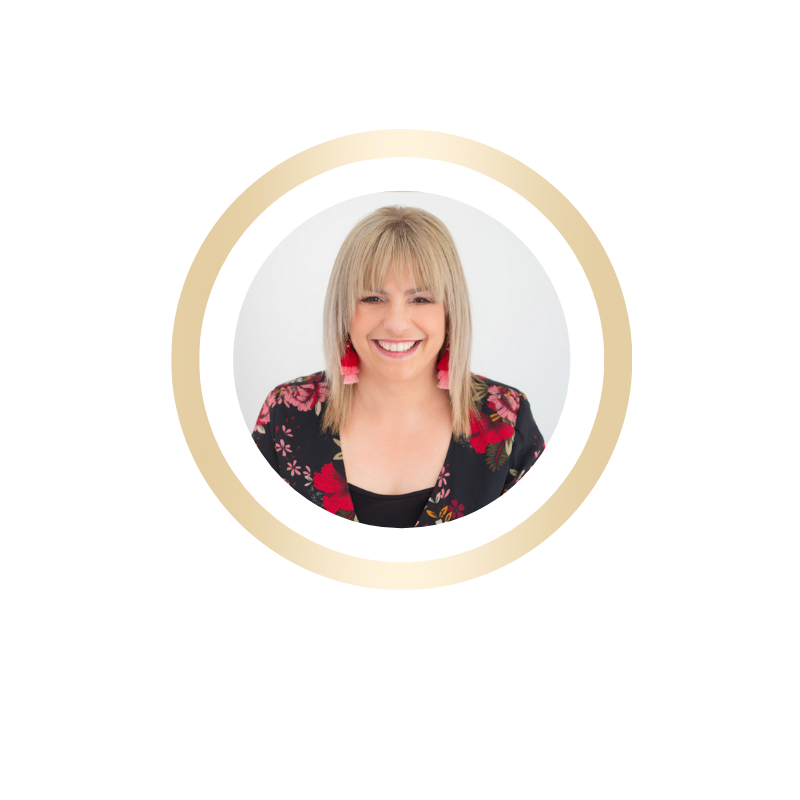
Updated August 2025 with latest hypnotherapy research and techniques
Let me guess, when you think of hypnosis, you probably picture someone swinging a pocket watch saying "you're getting sleepy," or maybe a stage hypnotist making people cluck like chickens, right?
I get it. As a clinical hypnotherapist and transformational menopause coach here in Brisbane, that's usually the first thing people ask me about. And honestly, if that's what hypnosis actually was, I'd probably be doing something else for a living!
So let's clear the air about what hypnosis really is, how it actually works, and why it might just be one of the most practical tools you never knew you needed.
What Hypnosis Actually Feels Like
Hypnosis is basically a super-focused state where your mind becomes more open to positive suggestions. Think about those moments when you're completely absorbed in a good book, or when you're driving a familiar route and suddenly realise you don't remember the last few kilometres. That's actually a natural hypnotic state!
It's similar to:
- Daydreaming during a boring meeting
- That drowsy feeling just before you fall asleep
- Being "in the zone" during exercise or creative work
- Meditation or deep relaxation
And here's the thing that might surprise you, hypnosis is definitely not mind control. If it were, there'd be a lot more hypnotherapists driving around in Ferraris! Instead, it's more like a collaboration between you and me, working together to help you achieve your goals.
A Quick Look Back: Where Did Hypnosis Come From?
Hypnosis has been around forever – ancient civilisations used trance-like states in their healing rituals. But modern hypnotherapy really started taking shape in the 18th century with a guy named Franz Mesmer and his theory of "animal magnetism."
His ideas didn't exactly hold up to scrutiny, but they paved the way for what came next. Fast forward to the 19th century, when Scottish surgeon James Braid coined the term "hypnosis" and helped establish it as a legitimate field of study.
Pretty cool that something with such ancient roots is now backed by modern neuroscience, right?
Let's Bust Some Myths Right Now
Myth #1: "Hypnosis is mind control" Nope! When you're in hypnosis, you're still completely in control. You can't be made to do anything against your values or that you wouldn't normally do. You're just more relaxed and focused.
Myth #2: "Only certain people can be hypnotised" Actually, almost everyone experiences hypnosis daily and in sessions with me if they're willing and open to it. Some people might go deeper than others, but that doesn't mean it's not working.
Myth #3: "Hypnosis is dangerous" When done by a qualified professional (like yours truly), hypnosis is completely safe and natural. It's actually one of the gentlest therapeutic approaches out there.
How Does This Whole Thing Actually Work?
Here's where it gets interesting. Hypnosis works by chatting directly with your subconscious mind – that's the part that runs on autopilot and controls most of your daily habits.
Think about brushing your teeth or making your morning coffee. You don't consciously think through every step anymore, right? That's your subconscious handling the routine stuff.
During hypnosis, your conscious mind (the part that analyses and worries about everything) takes a little break. This allows your subconscious to become more receptive to positive suggestions that can help you make the changes you want.
What's Happening in Your Brain
When you're hypnotised, your brainwave patterns actually change. You shift from the busy beta waves of active thinking to the more relaxed alpha and theta waves associated with creativity and deep relaxation. It's similar to what happens during meditation or just before you fall asleep.
This altered state is what makes hypnosis such a powerful tool for change – your brain is literally in the perfect condition to absorb new, helpful patterns of thinking and behaving.
The Different Types of Hypnosis I Use
Traditional Hypnosis - this is the straightforward approach where I guide you into relaxation and then offer direct, positive suggestions. It works great for things like stress management or building confidence. I love using your own words during sessions because they resonate more deeply with you.
Ericksonian Hypnosis - this is my go-to for analytical minds (you know who you are – the ones who question everything!). Instead of direct suggestions, I use stories and metaphors to communicate with your subconscious. It feels less like someone telling you what to do and more like a natural thought process.
Cognitive-Behavioural Hypnosis - this combines the best of cognitive-behavioural therapy with hypnosis. It's particularly effective for anxiety, depression, and phobias because we work with both your conscious thoughts and subconscious patterns.
Self-Hypnosis - I also teach you how to hypnotise yourself! It's incredibly empowering to have these tools for ongoing stress management and personal development.
What Can Hypnosis Actually Help With?
The applications are pretty amazing, honestly:
Stress and Anxiety
This is probably the most common reason people come to see me. Hypnosis is incredibly effective for reducing anxiety symptoms and teaching you practical tools for managing everyday stress.
Confidence and Self-Esteem
Whether it's public speaking, job interviews, or just feeling more comfortable in your own skin, hypnosis can help rewire those self-doubt patterns.
Habits and Behaviours
Want to quit procrastinating, perfectionism? Struggling with emotional eating? Hypnosis addresses the subconscious triggers that drive these behaviours.
Sleep Issues
If your mind races at bedtime, or you wake up during the night, hypnosis can teach your nervous system how to wind down properly.
Pain Management
Hypnosis has been shown to be effective for chronic pain conditions by changing how your brain processes pain signals.
Workplace Performance
From reducing presentation anxiety to improving focus and overcoming procrastination, hypnosis can give you that professional edge.
Menopause Symptoms
You know the drill, hot flashes/night sweats that hit at the worst possible moments, feeling irritable over things that never used to bother you, zero patience for anyone or anything, a libido that’s gone on permanent vacation, aches and pains that seem to appear overnight, and so much more fun stuff that nobody really prepares you for.
What Actually Happens in a Session?
Before we start, I'll ask you about what's going on and what you'd like to achieve. I'll explain exactly what to expect so you feel completely comfortable.
The hypnosis process typically involves four phases:
- Induction – I guide you into relaxation using breathing exercises or visualisation
- Deepening – We go a bit deeper using techniques like counting down or imagining peaceful scenes
- Suggestions – This is where the real work happens, with positive suggestions tailored to your goals
- Emergence – I gently guide you back to full awareness, and you'll likely feel refreshed and relaxed
The whole thing usually takes about 45-60 minutes, and most people are surprised by how normal and pleasant it feels. Often my clients ask if they can just come for relaxation sessions, as it's the most relaxed they've felt in awhile.
Choosing the Right Hypnotherapist
Look for professional qualifications – I'm certified with both Clinical Hypnotherapy Australia and Hypnosis New Zealand, so I follow strict ethical guidelines.
Experience matters – Make sure they have specific experience with your particular concern, whether that's anxiety, habits, or something else.
Ask questions – A good hypnotherapist will be happy to explain their approach and give you realistic expectations about outcomes.
Self-Hypnosis: Taking Control Into Your Own Hands
One of the best things about working with me is that I teach you self-hypnosis techniques you can use at home. It's like having a portable stress-relief tool that's always available.
The basics are simple:
- Find a quiet, comfortable space
- Use deep breathing to relax
- Focus on releasing tension from your body
- Give yourself positive suggestions related to your goals
The key is consistency – the more you practice, the more natural it becomes.
Is Hypnosis Right for Everyone?
Hypnosis is generally very safe when administered by a professionally qualified Hypnotherapist, but there are a few situations where it may not be suitable:
- Certain mental health conditions like schizophrenia
- Active substance abuse issues
- If you're not willing to participate actively in the process
I always recommend that you should seek confirmation from your General Practitioner if you have any health concerns prior to commencing with hypnotherapy.
The Bottom Line
Hypnosis isn't magic (I wish it was!), it's a scientifically-backed therapeutic tool that can help you make positive changes by working with your subconscious mind. Whether you're dealing with stress, wanting to build confidence, or trying to change a habit, hypnosis offers a gentle but powerful way to create lasting change.
The best part? You're in control the entire time, and you'll likely find the experience much more relaxing and pleasant than you expected.
If you've been curious about hypnosis but weren't sure what it was all about, I hope this has helped clear things up. It's not about pocket watches, quacking like a duck, or making you do silly things – it's about helping you access your own inner resources to create the changes you want in your life.
Ready to experience the real benefits of clinical hypnotherapy?
As a qualified hypnotherapist and transformational menopause coach specialising in stress management, burnout, menopause and weight loss, confidence building, and life transitions (they're all interwined). I'd love to help you discover how powerful and practical hypnosis can be.
Follow Me for honest insights on perimenopause, burnout recovery, stress management and weight loss and how to keep thriving when life throws you curveballs.


















0 Comments